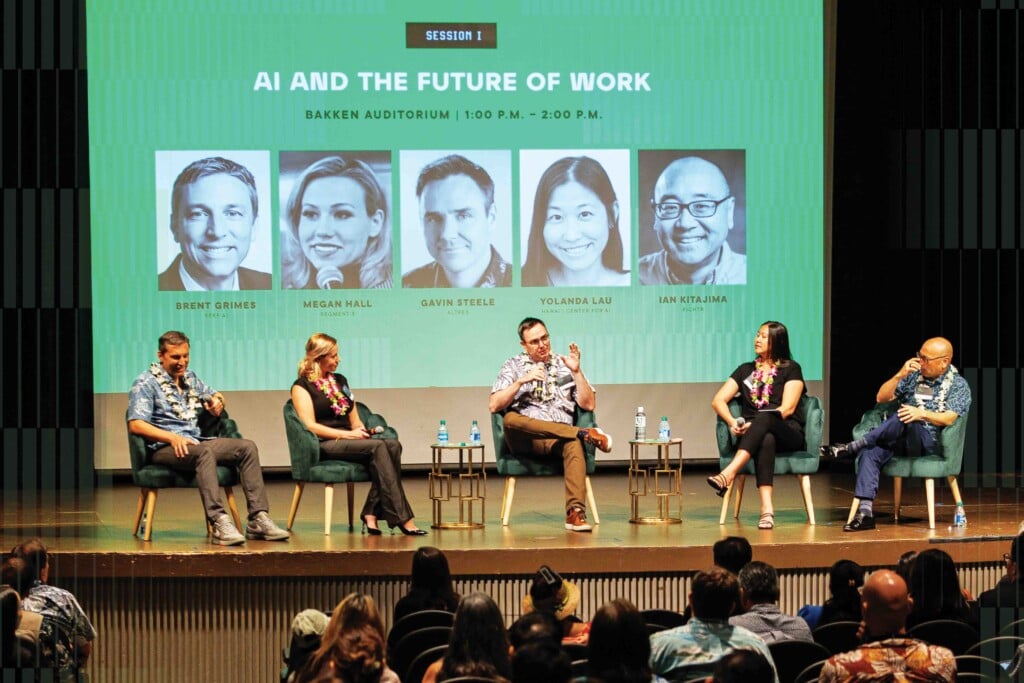The Best of Startup Paradise 2017
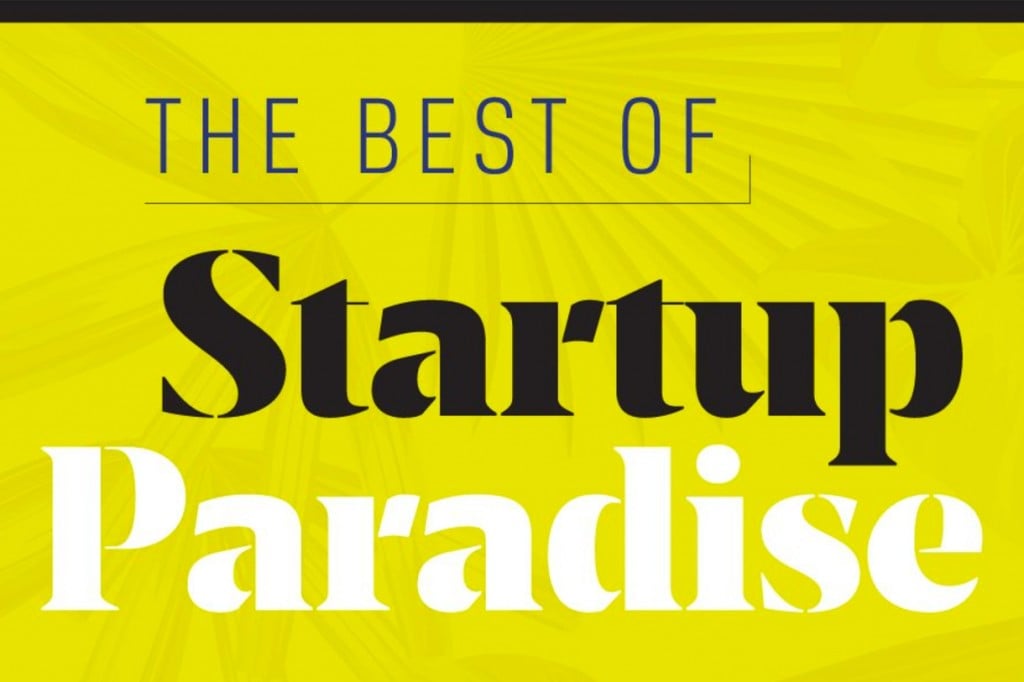
Startup Paradise Is Good for All of Us.
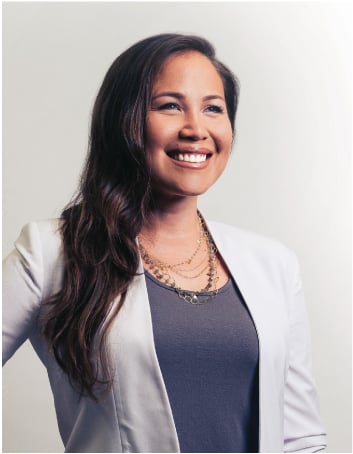
Meli James, president of the Hawaii Venture Capital Association.
Everyone in Hawaii can and should be an advocate and champion for Startup Paradise, because we all benefit from a vibrant startup culture, says Meli James, president of the Hawaii Venture Capital Association.
One benefit is a startup culture helps keep young kamaaina in the Islands and helps bring others home, says James, who herself came back to Hawaii after a career in Silicon Valley. She now heads new ventures at Sultan Ventures.
She says HVCA’s annual awards raise awareness of the quality and quantity of local startups. And the credibility of the awards helps winners and finalists to establish partnerships, recruit good teams and raise money in the Islands and on the Mainland.
“Normally, what makes it into the media is one of two things,” James says, “failure or success. That is a company going out of business or an acquisition. But there are many successes along the way that should be celebrated, promoted and supported.”
The HVCA Awards also showcase some of Startup Paradise’s many achievements, James says, including the relatively high proportion of female entrepreneurs. “One out of four of our finalists are women. By comparison, the national average is in the single digits. And we hope Hawaii’s numbers increase in years to come.”
Tarik Sultan, managing partner at Sultan Ventures and XLR8UH, and treasurer of the HVCA board, gave a quick overview of Hawaii’s startup culture during a recent HVCA meeting. Among the points he made:
• About 145 startups have gone through four Hawaii accelerator programs over the past four years and a large majority are still alive and growing. There have been two exits. The four accelerators are Blue Startups, XLR8UH, Energy Excelerator and GVS Transmedia Accelerator.
• Those startups have generated a total of $250 million in revenue and funding.
As expected, Sultan says, “A few outlier companies that are outperforming are raising the average for the rest of the startups.” That’s to be expected, but, overall, the trend is upward. One thing that would make a big difference, he says: The local startup community could use more support from established businesses and investors in Hawaii.
DEAL OF THE YEAR
Recognizes the Startup Paradise company that received the largest financial deal of 2016.
WINNER: Scott Mercer
Founder, Volta Charging

Volta Charging launched its pilot program on Oahu in 2012 with six stations.
“There were two (brands of) electric cars on the Island at the time,” Mercer says. “The tide has completely switched today. Even million-dollar Ferraris use our stations. All car companies are building electric cars.”
There are now 212 Volta Charging stations in Hawaii and California, with 500 more under contract to be built. But the deal of the year is for setting up the company to expand nationally. In October, Volta Charging secured $40 million in funding (headed by Virgo Investments) so it can enter Phase III of Mercer’s business plan: stations across the nation.
“We’re just starting in Arizona, Chicago, Seattle and D.C. and we’ll have a couple more locations to follow,” Mercer says. “That is our 2017 goal. We’ll grow from there.”
ENTREPRENEUR OF THE YEAR
Individual or team that has gone above expectations with their company. A clear example to other entrepreneurs.
WINNER – Tina Fitch
Co-founder, Hobnob
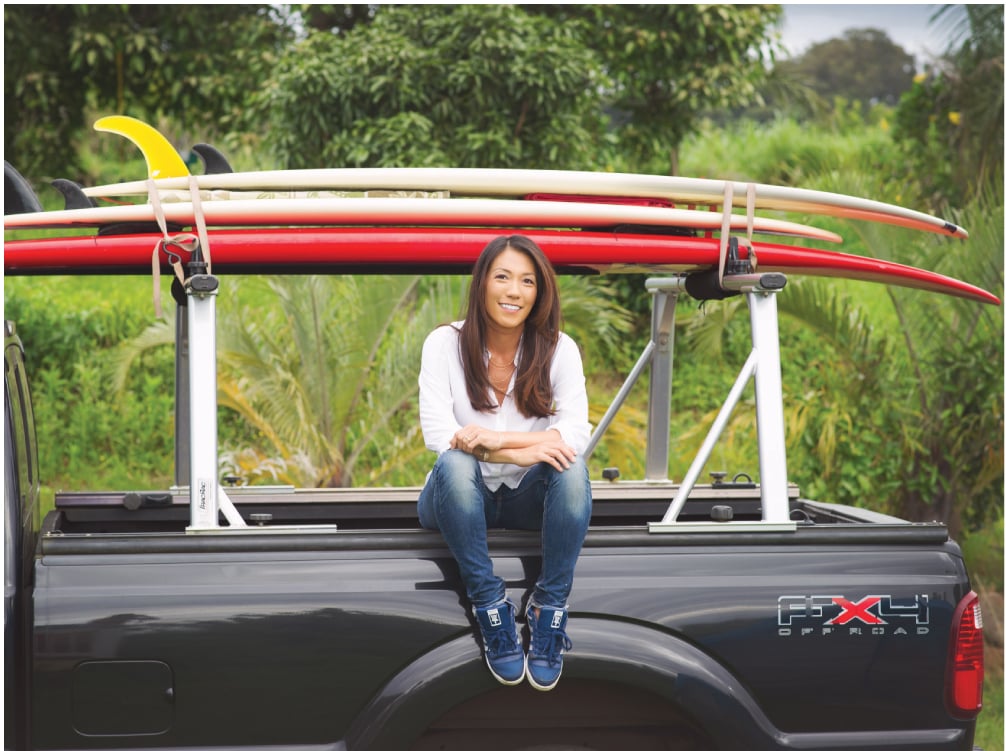
Hobnob’s concept struck Fitch while she was using social media.
“The irony of social media was that it was making us less social,” she says. “I felt people were craving a return to real, offline relationships and dialogue, and want to use technology to enhance our humanity, not detract from it.”
Hobnob is Fitch’s third startup. After creating the successful travel platform Switchfly, Fitch built one of the most popular free-invitation apps. Hobnob can be downloaded to smartphones and, within 60 seconds, users can create their own layout or choose from existing layouts for an invitation. Talk about the life of the party: Hobnob has sent more than 3 million invitations since launching in November 2015.
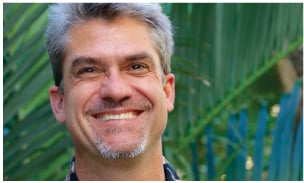 Finalist – Michael Pfeffer
Finalist – Michael Pfeffer
CEO, Ibis Networks
Pfeffer didn’t start out wanting to be a serial entrepreneur, angel investor and venture capitalist.
“Believe it or not I started in archaeology,” he says, “but my passion and focus for the last 20 years has been in helping startups get funded, grow and, ultimately, be successful” – both as an investor/mentor and as a startup CEO.
Ibis, with projected 2017 sales in the low seven figures, is all about saving power. The company’s InteliSockets fit on a regular electrical outlet and become part of a wireless network that monitors each device in real time and allows them to be remote controlled.
 Finalist – Bianca Tubolino
Finalist – Bianca Tubolino
Founder, Jetset ESL
Tubolino is on the cusp of creating a lucrative venture from a startup that gives free English lessons on Instagram.
Few English teachers want to go to Brazil, since they get paid $8 an hour, she says. So she partnered with Amanda Leal, who owns three English-speaking schools ranked in the top five in Brazil.
Within six months of using Tubolino’s Instagram teaching approach, in which students learn from native English speakers, Leal saw her student retention grow to 98 percent from 85 percent, and her book sales increased 150 percent, Tubolino says.
By mid-2017, Tubolino says, she hopes to secure contracts with some of the largest language-school franchises in Brazil.
PEOPLE’S CHOICE STARTUP – Presented by Hawaii Business magazine
Chosen by the votes of the Innovation Community, this company is a model to others based on its successes, popularity and community support. (Winner to be announced at awards ceremony)
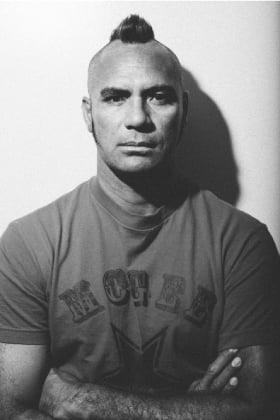
WINNER – Kainoa McGee
Founder, KMBCo.
McGee is one of the top watermen in Hawaii. Professional surfer, bodyboarder, standup-paddle boarder – if it’s in the ocean, he’s on it.
But much of that is on the backburner since he created KMBCo. to help people with disabilities enjoy the ocean. His company is creating “Versatility Krafts,” a half-surfboard/half-canoe that comes with stabilizing arms on each side similar to outrigger canoes, offering enough stability and room for individuals and families to paddle together.
“There is a bigger need than I initially thought,” McGee says. “There are people in walkers and wheelchairs who look at how big standup-paddle boarding is today and think ‘I can never do that.’ Our Krafts crush that myth.”
Finalist – Zachary and Lawrence Hester, FareHarbor, Fareharbor.com
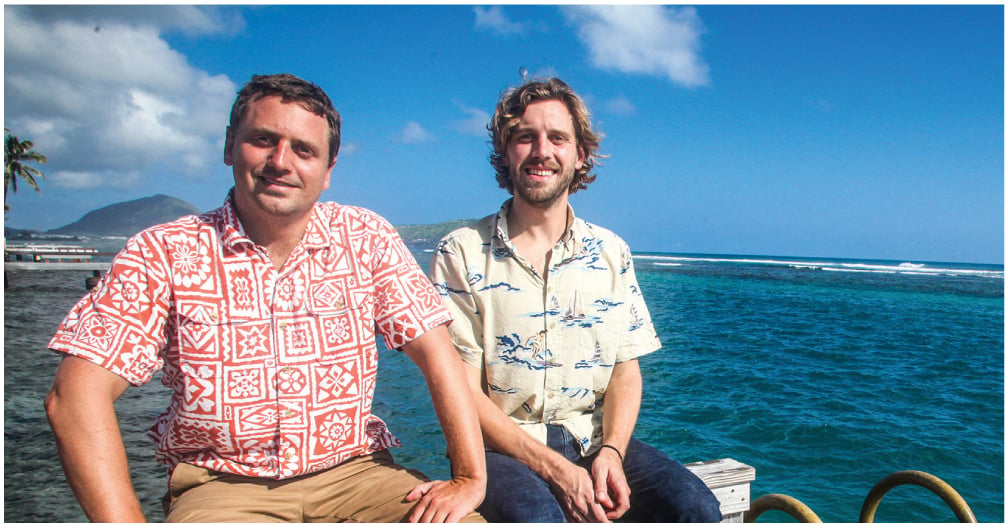
Lawrence was sleeping on Zachary’s girlfriend’s couch when the brothers signed North Shore Catamaran to be FareHarbor’s first client in 2013. Today, the reservation software company has more than 500 accounts across Hawaii and more than 3,500 throughout the United States. Zachary says it is the world’s largest online booking application, with 130 employees and projections of $3 billion in bookings in 2017.
“When we started we averaged three hours sleep, tops,” he says. “It took a lot of hard work to get here. We’re not sleeping on couches anymore, but we’re not oceanside, either. We’re still growing.”
 Finalist – Mitzi Toro
Finalist – Mitzi Toro
Owner, The Maui Cookie Lady
Toro is a teacher turned Cookie-preneur.
She started her business as a fundraiser to thank nurses who took care of her terminally ill father and today her “cookies for a cause” are featured at top hotels on Maui, Lanai and Hawaii Island. themauicookielady.com still has a photo of the ICU staff.
Toro’s goal is global sales while keeping production on Maui. She started shipping across the nation when she resigned from her teaching job and went full time in 2016. This year she will start shipping internationally.
Finalist – Bianca Tubolino
Founder, Jetset ESL
See profile under Entrepreneur of the Year
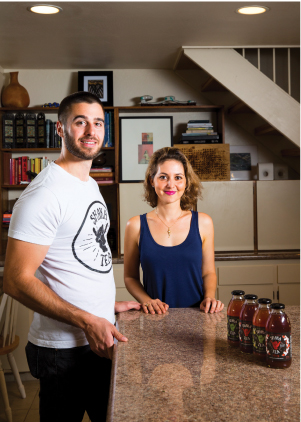 Finalist – Isabella Hughes & Harrison Rice
Finalist – Isabella Hughes & Harrison Rice
Co-owners, Shaka Tea
Hughes and Rice were living in Dubai when Hughes, then pregnant, flew home to Oahu.
“All of her aunties kept telling her to drink mamaki tea because of all the health benefits,” Rice says. “When she got back we looked it up and they were right. It has five times the antioxidants of green tea and lots of other benefits.”
The married couple produced their batch of Shaka Tea in April 2016, getting into 100 markets and drawing the attention of Paradise Beverages, which has since ramped up Shaka’s distribution.
“When I go to the Northwest to sell tea, people love the fact that it’s from Hawaii,” Rice says. “There is a huge market out there for this.”
Finalist – Vincent Kimura
Co-founder, Smart Yields
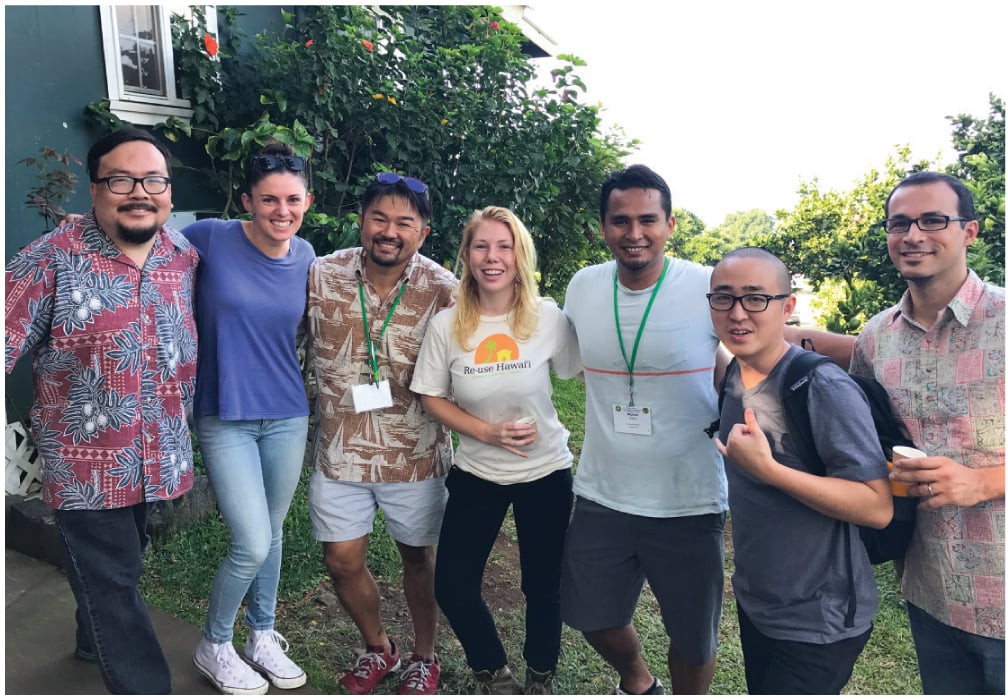
Vincent Kimura (third from left) and the Smart Yields team.
Vincent Kimura likes to call the heart of Smart Yields’ technology “ground satellites.”
“Our sensors are in the crops and give better indications of what is going on than an image from above,” he says.
The vision of Kimura and his five fellow co-founders – Justin Hedani, Isar Mostafanezhad, Ryan Ozawa, Michael Rogers and Lizzy Schiller – is to not only supply farmers with information to maximize their yields, but also interpret the data and offer suggestions on how to get the most out of their crops.
“It’s like crowdsourcing only you don’t see the other farmer’s statistics directly. Our software lets farmers know how others are dealing with the same climates or problems.”
SOCIAL IMPACT ENTREPRENEUR OF THE YEAR
An entrepreneur or company that substantially contributes to helping solve some of Hawaii’s toughest problems.
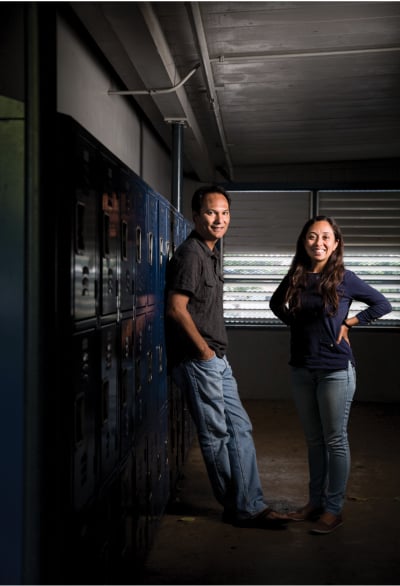
Olin Lagon and Kelsey Amos, Purple Mai’a co-founders.
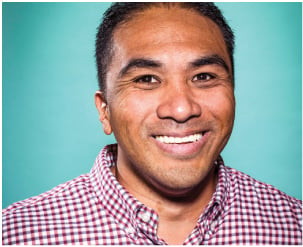
Donovan Kealoha, Purple Mai’a co-founder.
WINNER – Purple Mai‘a
Co-founders Donavan Kealoha, Kelsey Amos, and Olin Lagon
Purple Maia is designed to give underprivileged children exposure to computer science and, after every session, the students fill out surveys. Those surveys put a smile on Kealoha’s face because they show the children gaining confidence and recognizing their abilities.
“These are the communities myself and my co-founders grew up in,” Kealoha says. “We are the throwaway kids not considered the best and the brightest.
They don’t have all the opportunities. But we tell them they can do it from Day 1 and right away they see they are capable and smart enough to do it.”
He expects Purple Maia will be reaching 260 children in 11 schools by the end of the school year.
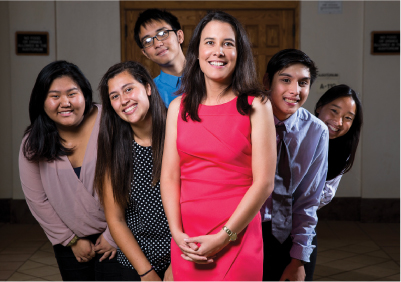 Finalist – Katie Chang
Finalist – Katie Chang
Executive Director, Center for Tomorrow’s Leaders
When students at the center learned that hot classrooms were a problem at Campbell High School, they started crowdfunding and raised $22,000 for air conditioning.
“They took it on themselves,” Chang says. “None of them went to school there. They just saw a need and that’s what this program is about. It gives you a feeling of empowerment that you can do more.”
Chang knows the impact firsthand. In 2004, she was a part of the initial first class when it was a “pet project.” Back then, there were 20 students; now there are 250. In 2013, CTL became a nonprofit and Chang left her job in London to work with kids on the island where she grew up.
Finalist – Kainoa McGee
Founder, KMBCo.
See profile under People’s Choice finalists
CLEAN TECH/AG ENTREPRENEUR OF THE YEAR
An entrepreneur and company whose technology supports a greener future or helps farmers with innovative agricultural practices.
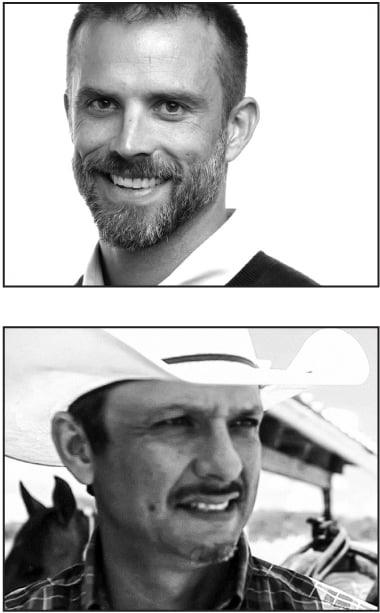
(from top) Jack Beuttell and Bobby Farias Jr.
WINNER – Jack Beuttell and Bobby Farias Jr.
Co-founders, Kunoa Cattle Co.
Today, 97 percent of the beef eaten in the state is imported, but Kunoa Cattle Co. wants to help make Hawaii self-sufficient in food.
“The problem in Hawaii has never been the capability to raise cattle,” Farias says. “It’s the perfect place because we don’t need to feed them hormones to keep them healthy because of our climate. We can raise grass-fed, free-range cattle from pasture to plate. The problem ranchers here have had in getting their meat to market is we didn’t have enough cold storage or a processing plant that could handle demand.”
Farias and his partners already had cattle and pastureland, but in November they bought Oahu’s only slaughterhouse. He says the Kapolei facility will harvest 40 head a day and offer premium beef and pork.
Finalist – Brian Goldstein
Founder, Manoa Botanicals
Goldstein loves helping launch new industries. He worked in Silicon Valley with Oracle when the internet took off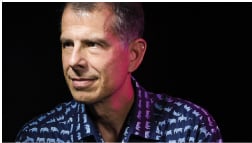 and he was a pioneer in the electric-vehicle-charging industry. Today, he is the founder of Manoa Botanicals, holder of one of eight medical marijuana grower licenses in the state.
and he was a pioneer in the electric-vehicle-charging industry. Today, he is the founder of Manoa Botanicals, holder of one of eight medical marijuana grower licenses in the state.
“It’s not often in Hawaii you can be part of creating a new industry,” he says. “What attracts me is the incredibly fast pace of innovation taking place in this field. This is by far the most rapidly evolving industry I’ve ever been involved with.”
What’s changing most rapidly is how people ingest marijuana and continue to find new medicinal purposes for it, he says.
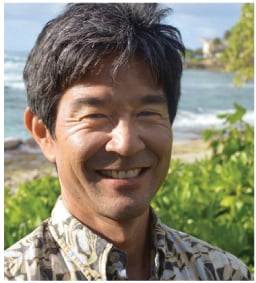 Finalist – Dennis Furukawa
Finalist – Dennis Furukawa
Founder, RealGreen Power
When he was an architect, Furukawa says, he would push his clients for environmental solutions, but the ideas often fell on deaf ears. Now that he’s an entrepreneur and land developer, he takes matters into his own hands.
“The two real critical blocks for land development is where to get water and where to put sewage,” he says. Those are keystones to sustainability. He says that’s why he founded RealGreen Power, a company devoted to producing clean energy and clean water without pollution or waste.
“We’re working on a project now with Blue Planet on the Big Island that involves recycling a quarter of a million gallons of wastewater a day that will be used for creating landscaping on the moonscape of Kohala.”
CORPORATE INTRAPRENEUR OF THE YEAR
A person who creatively challenges traditions and changes a company’s culture to ensure fellow employees are engaged and can be intrapreneurial.
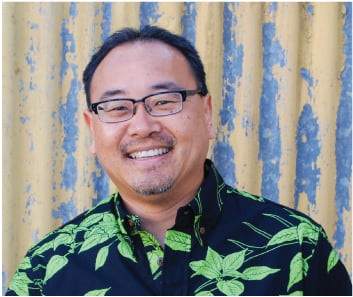 WINNER – Ian Kitajima
WINNER – Ian Kitajima
Director of corporate development, Oceanit
If the crowd turns left, Ian Kitajima is sure to go right.
It is the way of Oceanit, and the 1983 Castle High School grad embodies the tech company’s policy of constant change and looking beyond the normal.
“I call where I go the ‘white spaces,’” says Kitajima. “It’s part of my job to go where nobody else does because that’s where the person with the new idea or innovation is.”
Internally, he’s called the “Tech Sherpa” because he is both a recruiter and someone who discerns what customers really want from what they say.
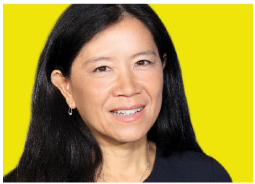 Finalist – Dora Nakafuji
Finalist – Dora Nakafuji
Director of Renewable Energy Planning, Hawaiian Electric Co.
Nakafuji is a linchpin for renewable energy across Hawaii. Solar, wind, geothermal, wave – when an alternative source touches the grids of the Hawaiian Electric Co., she’s probably had a hand in making it work.
Her nomination comes from the dozens of vendors she coordinates as she leads HECO’s charge to integrate and harness all the alternative energies and get them working together. Other utilities across the country are watching HECO innovate with new technology and programs.
“I see it coming soon where customers will get more involved in how they’re using their energy,” Nakafuji says. “It’s not demand response, it’s more like grid response or demand plus grid response.”
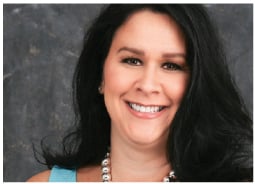 Finalist – Stacy Clayton
Finalist – Stacy Clayton
Executive Strategy Consultant, Strategy & Innovation Division, Kamehameha Schools
Clayton is proud that KS has created a Strategy & Innovation Division. “It’s a bold statement that this isn’t status quo,” Clayton says. “This is a commitment to growing the next great venturer, innovator or entrepreneur.”
Clayton’s new role includes finding ways to make sure Hawaiians get the best opportunities to succeed in the future. Two programs that helped lead to her nomination are a new meeting house on Beretania Street, Halau Inana ma Kapaakea, where Clayton says innovation and creation come to life, and her mapping of youth, collegiate and adult innovation and entrepreneurship ecosystems statewide.
LIFE SCIENCE ENTREPRENEUR OF THE YEAR
The entrepreneur whose company’s innovation helps solve some of the biggest problems in health care.
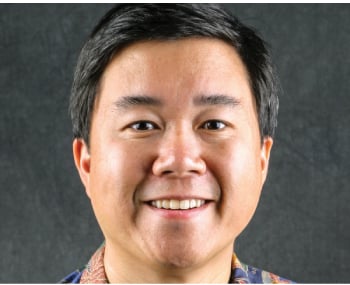 WINNER – Jeffrey Yu
WINNER – Jeffrey Yu
CEO, Kineticor
Yu was starting his career as a radiologist when a co-worker took him to his first medical trade show.
“I remember seeing the MRI images at the show and being blown away because ours never came out that clear,” Yu says. “I was going off on them and my friend quietly turned to me and asked, ‘Jeff, what type of patient are in these pictures?’ It was cadavers. Ah, yes. The reason they were so clear was the patient wasn’t moving. That never happens in real life.”
Kineticor’s motion-correcting technology is expected to cost about $100,000 per unit, Yu says, meaning it will easily pay for itself by eliminating poor images and misdiagnoses.
 Finalist – Luke Joseph
Finalist – Luke Joseph
Founder, iFirst Medical Technologies
iFirst’s technology is complex, but its life-saving app operates simply.
“We’re measuring the blood’s performance with the use of smartphone technology that can be sent to doctors within seconds,” Joseph says. “Five million people die from trauma injuries every year and this test can save 20 percent of those lives. That just scratches the surfaces of how this will be used.”
iFirst has one job: Measure how fast blood is coagulating. When medics get that one vital piece of information, Joseph says, they can stop bleed outs and other problems. He is hoping for FDA approval this year and to launch in 2018.
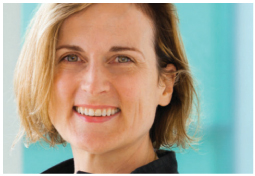 Finalist – Andrea Fleig
Finalist – Andrea Fleig
Co-founder, Cythera Pharmaceuticals
If all goes as planned, in about four years, a patented cream made with drugs already approved by the FDA will be on the market to bring relief to nearly 8 million Americans suffering from psoriasis. If it works on that autoimmune disease, Fleig says, it would likely work on Vitilgo (Michael Jackson’s skin discoloring disease) and systemic administration for multiple sclerosis.
“We just call it Cytherazine after the name of our company for now, but we’ll leave the real naming to whichever major drug company buys it from us.”
Fleig and her husband/business partner Reinhold Penner are clinical researchers at Queen’s and founded CyThera in 2014 to reposition FDA-approved drugs for new therapeutic indications based on ion channel targets.
STARTUP PARADISE CHAMPIONS
Someone who consistently contributes to the successes of Hawaii’s startup community.
WINNER: Burt Lum and Ryan Ozawa
Bytemarks Cafe
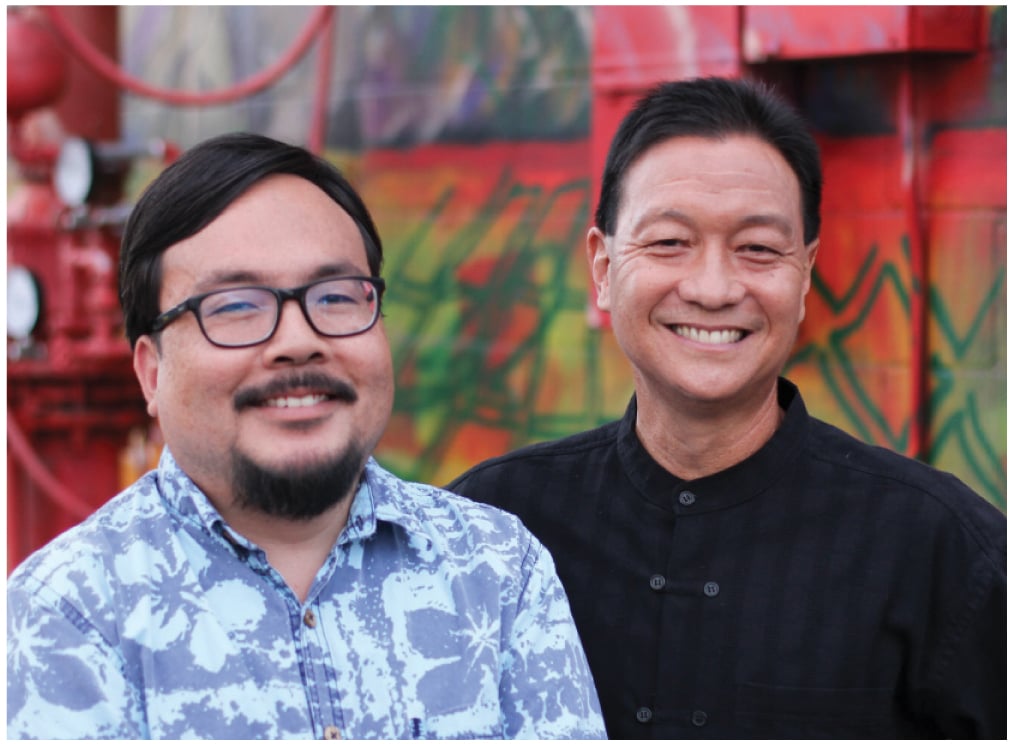
Ryan Ozawa (left) and Burt Lum (right)
When Ryan Ozawa attended the HVCA awards last year, he was happy to see that nearly every one of the nominees had appeared on Bytemarks Cafe, the science and technology show on Hawaii Public Radio that he co-hosts live with Burt Lum every Wednesday at 6:30 p.m. and Sunday at 10:30 a.m.
When he learned the list of this year’s nominees, it was the same thing, only this time he’s a double nominee with Burt Lum as a co-host for Bytemarks and as a co-founder of Smart Yields, where one of his partners, Vincent Kimura, worked as an intern with him 20 years ago.
“Now he’s my boss,” Ozawa says, chuckling. “Our show tries to do the same thing HVCA does. We look for the innovators and developers, the people making a difference. Burt and I don’t get paid, but we’ve done over 400 shows just because we love it.”
ISLAND INNOVATOR OF THE YEAR
Celebrating innovations that help islands like Hawaii’s, solving a major problem in communities, the ocean or the aina.
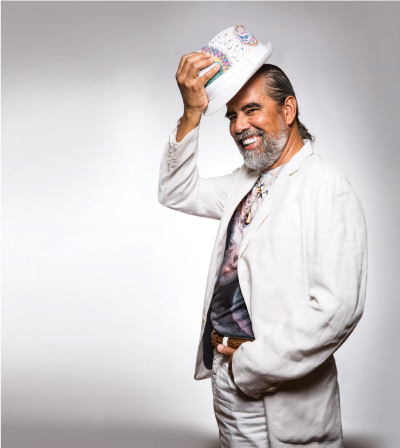 WINNER – Henk Rogers
WINNER – Henk Rogers
CEO, Blue Planet Energy
Rogers made his fortune by bringing the video game Tetris to the world, but his mission today is to eliminate fossil fuels and carbon footprints globally.
“But if I’m going to ask others to do it, I need to do it myself,” he says.
His Hawaii Island ranch and Honolulu home run entirely on renewable solar and wind energy that is stored for use when there is no sun or wind by technology created by Blue Planet Energy.
Rogers’ team evaluated batteries by Tesla and Sony before deciding which to use. “We chose Sony because it uses ferrous phosphate and is safer. The batteries have a longer life, up to 20 years, and they aren’t flammable.”
 Finalist – Todd Madsen
Finalist – Todd Madsen
President, Blue Ocean Mariculture
From hatch to harvest, Kona-based Blue Ocean Mariculture is bringing Hawaiian Kampachi to market with a goal of protecting the ocean environment.
“Seafood consumption is growing quickly, but the size of our oceans is not,” Madsen says. “We need to protect wild ocean ecosystems from the growing global demand for seafood proteins. Our team thinks that responsible mariculture is an important part of the solution by providing a safe, alternative supply of high quality seafood.”
“We also hope to bring other Hawaiian marine species to market in the coming years.”
Finalist – Dennis Furukawa
Founder, RealGreen Power
See profile on under Clean Tech/Ag Entrepreneur
TECH ENTREPRENEUR OF THE YEAR
Honoring the entrepreneur who has created technology and innovation to make our lives better.
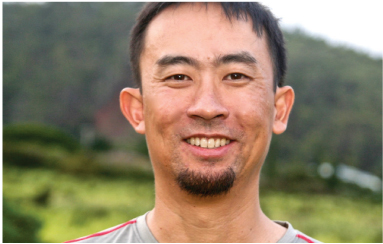 WINNER – Alex Cabello
WINNER – Alex Cabello
Co-founder, AlgorithmHub
Netflix uses algorithm technology to recommend movies to viewers based on what they’ve already watched. That’s the technology Cabello wants AlgorithmHub to provide to smaller companies who can’t afford to create it on their own.
AlgorithmHub will allow users to find, share and run algorithms in the cloud. The concept is to create communities around algorithms, thus accelerating their adoption and minimizing reinvention. The UH Cancer Center and the NSA are already customers, Cabello says.
“We work closely to see what the client’s needs are. This helps eliminate, for example, doctors solving the same problem over and over because they lose what they did the first time around or don’t share findings.”
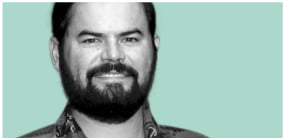 Finalist – Ikaika Sheehan
Finalist – Ikaika Sheehan
Co-founder, Activiter
Two friends interested in golf tours started a phone app for last-minute Hawaii deals and that venture’s blossomed into a nine-person tech company that helps travel companies sell tours and activities.
Activiter lets users research, find and book travel experiences in real time, Sheehan says. “My partner (Rob LaFontaine) and I went to Blue Startups 18 months ago and they suggested we talk to vendors about they want and what is missing. We went to Waikiki and talked to people. It paid off. By 2020 we hope to be in Europe.”
 Finalist – Sudesh Kumar
Finalist – Sudesh Kumar
Founder and CEO, Kapalya
Kapalya is an application that encrypts data on endpoints, corporate servers and cloud servers in addition to authenticating the users, Kumar says. And, “It seamlessly establishes VPN tunnels so all data in transit from the endpoints to corporate or cloud servers are encrypted.”
People create copies of data when they download confidential documents from corporate servers onto their laptops, or email copies to their personal e-mails. “In doing so, they have left a copy of that confidential data on their laptop, or the cloud server where their email service is hosted (such as Yahoo or Gmail). If this data is not encrypted at all these locations, then they could get compromised with a data leak.”
STUDENT ENTREPRENEUR OF THE YEAR
Honoring a younger member of the innovative community with a passion for learning and the tenacious spirit of an entrepreneur.
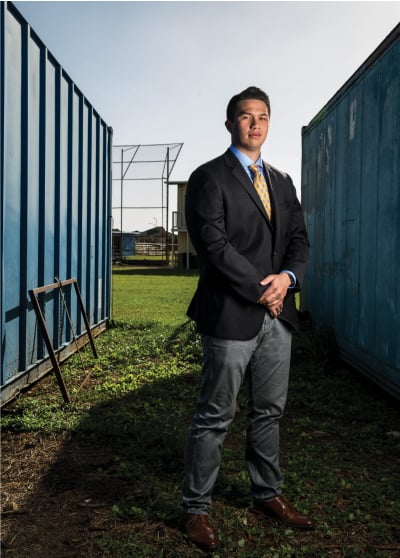 WINNER – Kyle Chang
WINNER – Kyle Chang
Co-founder, HealthTechApps
Chang has had two concussions: Once from playing high school football, and the other from snowboarding in Oregon.
The consequences for him are not serious, but concussions are major problems for many people. So the UH undergrad has partnered with Rick Abelmann and aunt Noe Foster to create a smartphone app designed to support concussion therapy and diagnosis.
Users video themselves while answering three questions: What are the top three songs on your playlist? Where do you want to travel and why? What is your cheat meal? The videos are kept by a medical provider and, if concussion is expected, the questions will be asked again to monitor the patient’s well being.
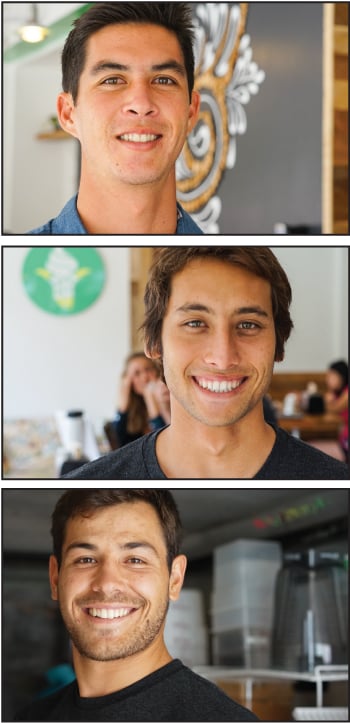
(from top) Zak Barry, Matt Hong, and Luke Untermann.
Finalist – Zak Barry, Matt Hong, Luke Untermann, Galen McCleary
Co-founders, Banan
They wanted to be entrepreneurs with a purpose. The four 2010 Punahou grads and longtime friends found what they were seeking in bananas.
“When we tried this vegan ‘nicecream’ recipe that was made from bananas, the simplicity of it blew us away because it tasted so much like ice cream but was easy to make,” Hong says. “Once we came up with the local farm-to-table concept, realizing Hawaii is one of the few states where bananas are locally grown, everyone moved back from across the country and Asia to start this up and it’s been going great.”
They started with a food truck purchased off Craigslist in 2014 and last year opened their first brick-and-mortar shop, on the corner of University and Metcalf streets.
Finalist – Rob Saito
Founder and President, Herbavore
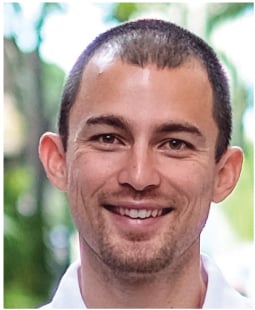
Saito has always dreamed big. His latest venture is Herbavore Tools, a customized-tool company that he thinks could revolutionize the gardening industry.
“We’ve got two patents pending and we’re about to submit our third,” says the 27-year-old MBA student. “When I was younger, I worked at a nursery and I’d always get blisters. With traditional gardening tools, you either sacrifice quality or comfort. I created a website where customers can measure their palms and get the handle that fits their size: medium, large, small. We streamlined how they’re made so you can customize color, shape, size.”
Saito founded Herbavore in May 2016 and is fundraising while working with XLR8UH on a business model.

